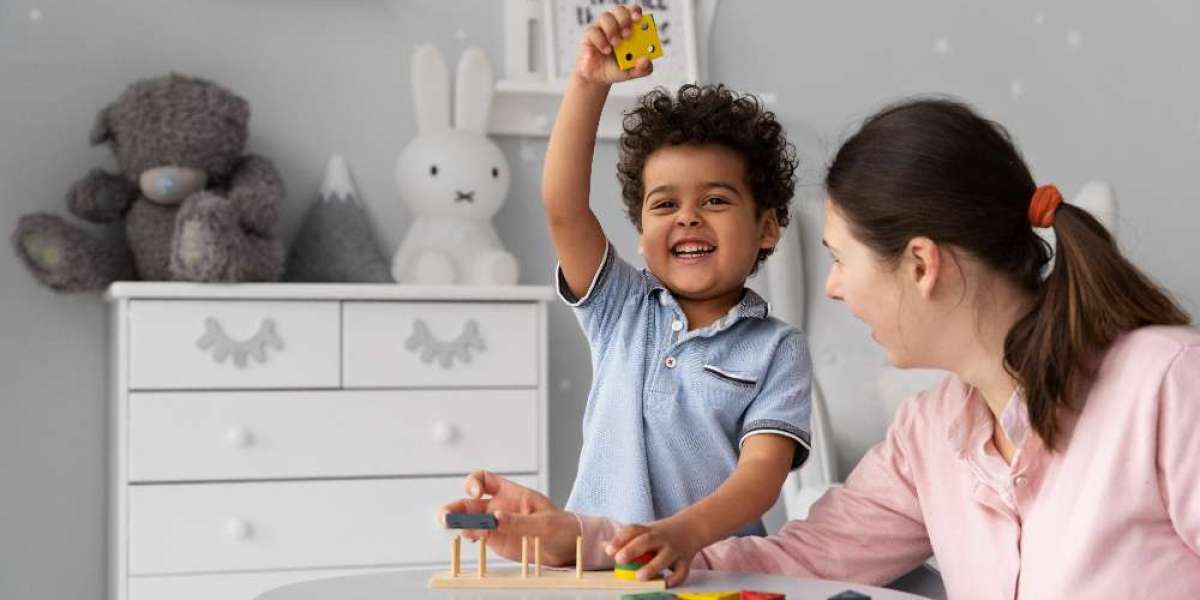Play therapy has become a widely used therapeutic approach that leverages play as a medium to help children express themselves and process a myriad of experiences in the course of growing up. Thanks to globalization, societies have become more diverse than ever, which has provoked a shift from traditional therapy practices to cultural inclusivity in play therapy.
This calls for therapists to create welcoming spaces where children feel seen, heard, and respected beyond any cultural prejudices or discrimination. This is necessary to nurture stronger therapeutic relationships that encourage children from all backgrounds to embrace their cultural identities and thrive in the true sense.
Importance of Cultural Inclusivity in Play Therapy
In the context of play therapy, cultural inclusivity refers to a characteristic of a therapeutic environment that takes into account the diverse cultural backgrounds of clients. The underlying goal is to make children feel valued and understood regardless of their cultural identities. It’s not simply about acknowledging cultural differences per se but actively integrating the norms, traditions, and values specific to each culture into therapeutic practices and day-to-day interactions. This may take the form of culturally appropriate toys and tools that reflect how cultural norms influence the way a child communicates and, most importantly, his worldview.
Role of therapists in multicultural play therapy
At the center of a play therapy setting are therapists who effectively act as role models for culturally inclusive behavior to help build trust with clients.
A key aspect of this is coming to terms with and eventually shedding any a priori assumptions or biases they had to understand better where their young clients are coming from.
A therapist needs to display an open and welcoming attitude with respect to children from diverse cultures and adapt therapy methods to incorporate culturally relevant symbols, stories, or practices into sessions.
This cultural awareness enables children to feel safe and validated, which subsequently promotes greater engagement in therapeutic processes. By providing meaningful support to children, therapists not only increase the effectiveness of therapy as a whole but ensure that children are well-equipped to co-exist and reach their full potential in a multicultural world.
Cultural Issues In Play Therapy
Even with the most well-intentioned therapists, there are bound to be certain blind spots that can impede efforts toward fostering a culturally inclusive environment.
This can happen when a therapist misinterprets a particular cue from a child that essentially forms part of a culturally rooted behavior. For instance, a child avoiding direct eye contact could be misunderstood as being defiant or rude even though he has been culturally taught that it is a sign of respect to elders.
Another potential source of conflict is the use of generic therapeutic tools or techniques that are seemingly biased in favor of one culture at the expense of another. This can risk alienating clients who may find it hard to relate or connect with therapeutic materials such as toys or narratives that are not directly relevant to their culture.
Therapists can be prone to over-generalizing or stereotypes when engaging with children from a specific cultural group. Assuming that certain experiences are common to children from a shared background can negate a child’s individuality and make therapy sessions counterproductive.
Cultural insensitivity on the part of the therapist can have profound implications not just for therapy itself but also result in missed opportunities for fostering rapport and engagement with children. This is established by studies whereby cultural competence is increasingly recognized as a desirable trait to overcome these blind spots and enhance trust and collaboration in therapeutic settings for greater patient satisfaction.
Strategies for Creating cultural inclusivity in play therapy
A proactive approach to learning and careful planning is a must for implementing Multicultural Play Therapy.
Invest your time in familiarizing yourself with the child’s cultural background. Leverage open-ended conversations with families and caregivers to gain insight into their dominant cultural practices or values. This can help you discard any assumptions related to any culture.
Engaging in an ongoing dialogue with parents serves to ensure that they are well-integrated in the therapeutic process as well as reveal the formative influences behind a child’s experiences and behaviors.
Effective communication goes beyond words to include a range of non-verbal cues like tone, gestures, and expressions that hold different meanings in different cultures. Give importance to cultural nuances to understand the motivations behind both language and body language and thus avoid misunderstandings.
Our course “Building Cultural Inclusivity in the Play Therapy Room” is specially designed to offer Mental health counselling training to therapists to help them create inclusive and supportive spaces for their clients.
The Role of Continuing Education For Therapists
The field of play therapy is ever-evolving, much like the discipline of mental health in the face of rapid societal changes. As societies acquire a multicultural character, there are growing expectations from therapists to continually improve their cultural competence. Continuing education is necessary to advance the therapeutic credentials of mental health professionals to fuel their professional growth while empowering them to build therapy around the core tenets of cultural competence.
Towards this end, programs like “Building Cultural Inclusivity in the Play Therapy Room” are contributing towards developing multicultural play therapy. These courses offer play therapy training to therapists to help inculcate key skills such as adapting play materials for diverse clients, bridging cultural divides in communication, and combating unconscious biases. Boost your expertise and lay the foundation for inclusive therapy practices with our live courses, or take advantage of our recorded courses at your convenience. Through our course, therapists can acquire up-to-date knowledge on research findings and best practices in cultural inclusivity, as well as learn about integrating play therapy tools for diverse clients to provide culturally-oriented therapy to clients.
Cultural Inclusivity In Play Therapy Examples
The concept of a multicultural play therapy room is not all theory but is backed up by numerous success stories.
Take the example of a recently located young immigrant girl who attended therapy sessions to help her with emotional adjustment. The therapist incorporated folktales from their culture into therapeutic play by making the child’s parents part of the therapy process. A culturally inclusive approach led to more engaged sessions that allowed the girl to overcome feelings of displacement and strengthened her emotional resilience over time.
The effectiveness of these practices is well borne out by research. One striking example of this is a 2021 study in the Journal of Child Psychology and Psychiatry that demonstrated how culturally inclusive therapy significantly improved emotional regulation as well as social functioning abilities in children compared to traditional therapy settings.
Final Thoughts
Cultural inclusivity has become a critical component of effective play therapy that empowers therapists to honor cultural diversity in the true sense. Cultural inclusivity is not simply an ethical concern but has emerged as a holistic, evidence-based strategy for making a positive impact on the lives of clients and children.
Whether you are a busy professional or an aspiring therapist, Core Wellness’s play therapy courses are your ultimate resource to acquaint yourself with the fundamentals of applying cultural inclusivity in play therapy. Register for a live interactive webinar or opt for an on-demand course to prepare yourself to deliver culturally competent care that meets the diverse needs of your clients. Enroll in this life-changing course today and explore the transformative potential of cultural inclusivity in play therapy.








